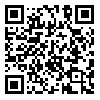

BibTeX | RIS | EndNote | Medlars | ProCite | Reference Manager | RefWorks
Send citation to:
URL: http://jdisabilstud.org/article-1-796-en.html
2- Islamic Azad University, Karaj
3- Shiraz University
Background & Objective: The term "learning disorder" describes a group of disorders characterized by inadequate development of specific academic, language, and speech skills. One type of the learning disorder is dyslexia. It is a specific learning disability in reading. Dyslexic children have trouble reading accurately and fluently. They may also have trouble with reading comprehension, spelling and writing. This study was aimed to investigate the effect of cognitive and metacognitive strategies on reading performance and academic self-efficacy in dyslexic boys.
Methods: A two group pretest-posttest quasi-experimental design was used in this study. The study population included all male students with reading disabilities of third and fourth grades in primary school in the school year 96-1395 of Tehran. Multi-stage cluster sampling was used to recruit 40 students with reading disorder. The participants were assigned to experimental and control groups in equal numbers. The research instruments were the Wechsler Intelligence Scale for children and Bandura's academic self-efficacy questionnaire. The experiment group received 10 sessions of Cognitive- metacognitive strategies training. Cognitive strategies included: Strategies to repeat or review: repeated recitation, repeated coding, repeating key terms aloud, retelling stories, underlining the contents, memorizing the easy content and annotations, highlighting the key words, marking and transcription the difficult subjects. Strategies for developing and making meaning: the use of intermediaries, imagery, locations, keyword, using the acronym for the easy content and notes, analogy, summarizing, applying the learned material. Metacognitive strategies included: strategic planning: Determining the purpose of study, predicting time to study and learn, determining the speed of study, analyzing how to deal with the subject of learning, selecting cognitive strategies.
Results: The results showed that the experimental and control groups performed differently on the components of reading performance (error, understanding and speed) and self-study group after testing.
Conclusion: Cognitive and metacognitive strategies instruction improves the reading performance and academic self-efficacy in students with dyslexia. So, based on the findings of this study, it can be concluded that intervention based on the cognitive and metacognitive strategies improves the reading performance of dyslexic children.
| Rights and permissions | |
 |
This work is licensed under a Creative Commons Attribution-NonCommercial 4.0 International License. |



